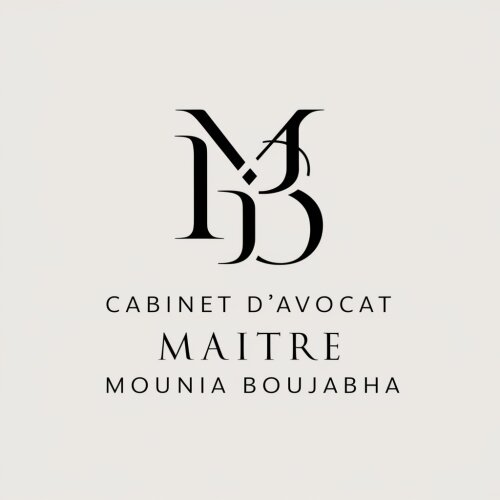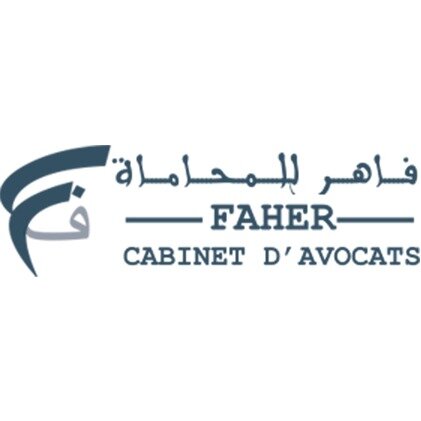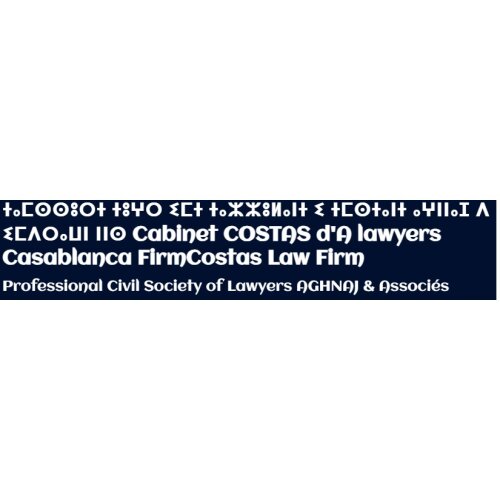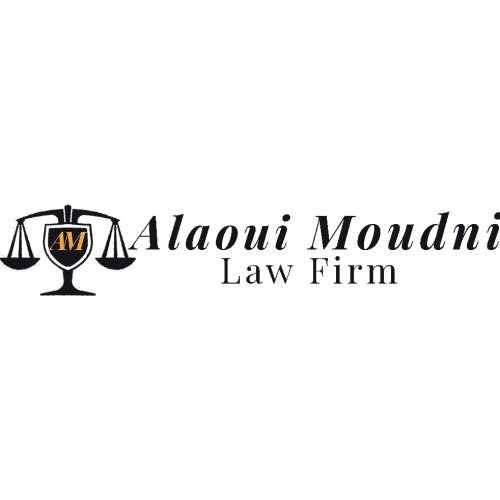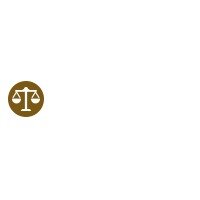Best Faith-Based Law Lawyers in Morocco
Share your needs with us, get contacted by law firms.
Free. Takes 2 min.
Or refine your search by selecting a city:
List of the best lawyers in Morocco
About Faith-Based Law in Morocco
Faith-Based Law in Morocco is predominantly centered around Islamic legal principles, as Morocco is an Islamic country. The legal system incorporates Sharia principles, particularly in personal status matters such as marriage, divorce, inheritance, and family law. These laws are codified within the Moudawana, a comprehensive family code established in 2004 which governs the rights and responsibilities of Moroccan citizens in relation to family issues. The Moudawana marks an attempt to balance traditional Islamic values with modern legal standards, ensuring a framework that respects both religious beliefs and human rights.
Why You May Need a Lawyer
There are various circumstances under which you might require legal assistance in the field of Faith-Based Law in Morocco:
- Marriage and Divorce: Navigating the legal procedures and requirements that are unique to Moroccan law.
- Inheritance: Understanding your rights and obligations under Sharia-influenced inheritance laws.
- Child Custody: Legal help is often needed to interpret custodial rights in line with faith-based legislation.
- Property Disputes: Guidance is essential when dealing with property or financial disputes under faith-based contexts.
- International Issues: Resolving matters of Moroccan nationals married to foreigners or mixed-faith issues.
Local Laws Overview
Several key components of Moroccan law pertain specifically to faith-based contexts:
- Family Law: Governed by the Moudawana, which addresses marriage contracts, marital rights, and responsibilities.
- Inheritance: Heavily influenced by Islamic Law, requiring distribution of estates according to fixed shares.
- Religious Courts: Family matters can be adjudicated in special sections of the court system that focus on religious law.
- Guardianship: Laws establishing the guardianship and financial support of minors, rooted in Islamic principles.
Frequently Asked Questions
1. What is the Moudawana?
The Moudawana is the Moroccan Family Code, reformed in 2004 to regulate family law matters such as marriage, divorce, and child custody. It incorporates Islamic Law while ensuring protection for women's and children's rights.
2. Can non-Muslims marry in Morocco?
Yes, non-Muslims can marry in Morocco, but they must comply with specific legal procedures, and if one party is Muslim, conversion to Islam may be required for legal recognition.
3. How is inheritance divided under Moroccan law?
Inheritance laws in Morocco are based on fixed shares determined by Sharia. Typically, immediate family members, including children, parents, and spouses, are primary inheritors.
4. What are the grounds for divorce in Morocco?
Divorce in Morocco can be sought due to reasons such as incompatibility, neglect, abuse, and irreconcilable differences, with different procedures depending on whether it is initiated by the husband or wife.
5. How can child custody disputes be resolved?
Child custody issues are resolved in family courts, and decisions prioritize the best interests of the child, often favoring the mother when the child is young.
6. What legal protections exist for women in marriage?
The Moudawana provides various protections, including equal rights in marriage and divorce, joint marital property rights, and specific conditions for polygamy.
7. Can an international marriage be recognized in Morocco?
Yes, international marriages can be recognized if they adhere to Moroccan procedural and documentation requirements, including certain religious and legal prescriptions.
8. Are there limitations on cross-faith marriages in Morocco?
Religious considerations play a significant role; generally, Muslim men can marry non-Muslim women, but Muslim women face restrictions marrying non-Muslim men without conversion.
9. What role do religious courts play?
Religious courts handle family matters under Islamic law, providing judgements within the context of faith-based legal principles.
10. How should one approach a legal dispute in a faith-based context?
It’s advisable to consult with a lawyer specializing in family law and Islamic law to navigate disputes while adhering to legal and religious guidelines.
Additional Resources
For further support, consider reaching out to:
- Ministry of Justice and Liberties: Provides information and guidance on legal procedures.
- Moroccan Bar Association: A resource for finding qualified lawyers in faith-based law.
- Family Law Courts: For legal assistance involving family-related disputes.
- NGOs and Legal Aid Organizations: Provide free or low-cost legal services to individuals in need.
Next Steps
If you require legal assistance in Faith-Based Law in Morocco, consider the following steps:
- Consultation: Schedule a meeting with a qualified lawyer who specializes in faith-based law.
- Documentation: Gather all necessary personal and legal documents relevant to your case.
- Understanding Your Rights: Educate yourself on your legal rights and obligations under Moroccan law.
- Action Plan: Work with your lawyer to develop a strategy tailored to your legal needs and objectives.
Lawzana helps you find the best lawyers and law firms in Morocco through a curated and pre-screened list of qualified legal professionals. Our platform offers rankings and detailed profiles of attorneys and law firms, allowing you to compare based on practice areas, including Faith-Based Law, experience, and client feedback.
Each profile includes a description of the firm's areas of practice, client reviews, team members and partners, year of establishment, spoken languages, office locations, contact information, social media presence, and any published articles or resources. Most firms on our platform speak English and are experienced in both local and international legal matters.
Get a quote from top-rated law firms in Morocco — quickly, securely, and without unnecessary hassle.
Disclaimer:
The information provided on this page is for general informational purposes only and does not constitute legal advice. While we strive to ensure the accuracy and relevance of the content, legal information may change over time, and interpretations of the law can vary. You should always consult with a qualified legal professional for advice specific to your situation.
We disclaim all liability for actions taken or not taken based on the content of this page. If you believe any information is incorrect or outdated, please contact us, and we will review and update it where appropriate.
Browse faith-based law law firms by city in Morocco
Refine your search by selecting a city.




